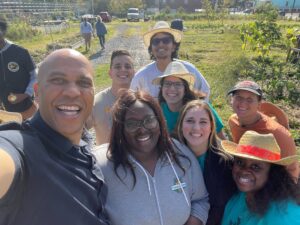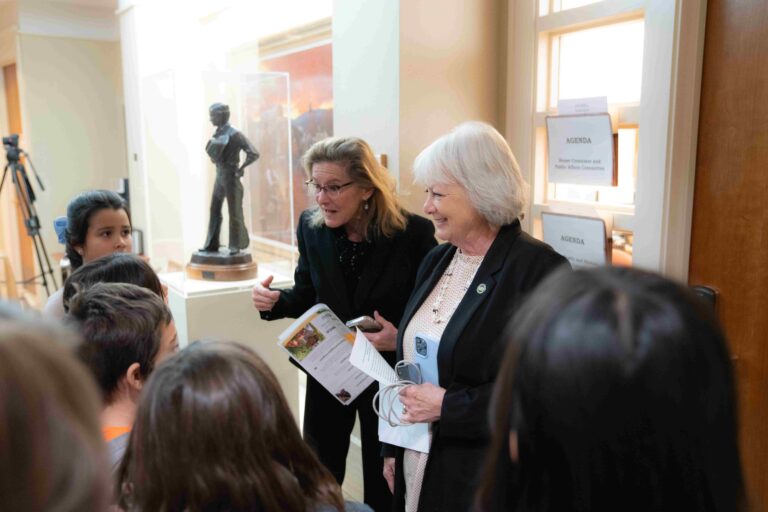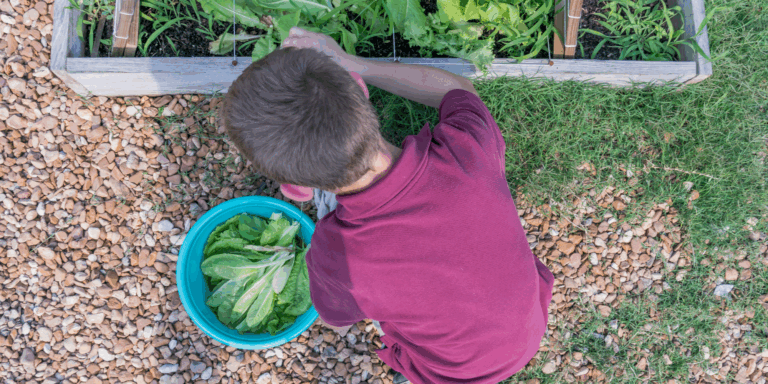What’s Next, After the White House Conference? October Policy Updates
The White House Conference is over. What can we do to keep the momentum going?
Join our corps! Applications for 2026-2027 are now open. Apply by March 30.
The White House Conference is over. What can we do to keep the momentum going?

After months of anticipation, the White House Conference on Hunger, Nutrition, and Health and the Biden Administration’s new strategy for a healthy nation captured the attention of the entire food systems community at the end of September. What happens now? Read on for updates from this historic event, and other recent federal policy news.
On September 28, the Biden Administration convened the first White House Conference on Hunger, Nutrition, and Health in more than 50 years. In tandem, the administration also released a new National Strategy on Hunger, Nutrition, and Health, which outlines five pillar strategies to end hunger, support child nutrition, and eliminate health disparities.
FoodCorps was actively involved in preparations for this event since the White House’s call to stakeholders in May to submit ideas to help set the goals and policy agenda of the conference. Launching our #TimeForFoodEd campaign, FoodCorps hosted listening sessions with education and nutrition leaders to outline key policy recommendations, which we submitted to the White House in July. We were heartened that all four of our core policy recommendations were included in the new national strategy announced last month.
In the lead-up to the conference, FoodCorps partner Warren DeShields, Director of Food Services at Bridgeton Public Schools in New Jersey, spoke on a panel to discuss nutrition and hunger alongside Ambassador Susan Rice, Senator Cory Booker, Senator Mike Braun, and Chairman James P. McGovern.
On the day of the conference, FoodCorps rolled out our Nourishing Future Initiative, a $250 million commitment grounded in equity that seeks to ensure all 50 million students learn about food and have access to nourishing, free meals in school by 2030. Our commitment was highlighted by USDA Secretary Vilsack in the opening remarks of the historic event. Chef José Andrés also celebrated FoodCorps’ impact in his keynote address. Phoebe Wong, a recent FoodCorps alumna, and FoodCorps partner Donna Martin, Nutrition Director for Burke County Schools in Georgia, were featured speakers on panels. Watch all of our highlights from the exciting day below.
What can we do now to keep the momentum going? Join FoodCorps on Tuesday, November 1 from 2:30-3:30pm ET for a virtual panel on how school nutrition and food education play a role in the new federal strategy, why this area of work continues to be critically important, and what happens next.
This month, the Biden-Harris Administration announced $50 million in grants for schools to invest in new food service equipment. This funding adds to the $30 million in equipment grants that the administration gave schools earlier this year. School districts can use the funds to purchase upgraded equipment that, among other things, supports serving healthier meals, sourcing local foods, and implementing scratch cooking.
Investing in school kitchen equipment upgrades is one of FoodCorps’ core policy priorities. These investments enable schools to more efficiently process and prepare meals, including more locally sourced ingredients, which often require additional preparation. FoodCorps applauds this new investment and will continue to advocate for policies that support nourishing school meals for all students.
October is National Farm to School Month, and local advocates and policymakers have been celebrating! In Connecticut, the “It’s Crunch Time” campaign—organized and supported by numerous organizations across the state—engaged schools, districts, and early childhood centers in celebrating local food through farmers’ markets, apple crunch challenges, corn shucking races, taste tests, farm field trips and farmer cafeteria visits, and more. State legislators were invited to events to see the impact of CT Grown for CT Kids Grants, which help establish and further farm to school programs throughout Connecticut. FoodCorps also co-hosted an “Invite Your Legislator to Crunch” webinar with the Connecticut State Department of Education to demystify legislator engagement and provide resources to support schools in sharing the impact of farm to school programs with policymakers.

In New Jersey, Sen. Cory Booker visited the Greater Newark Conservancy’s Hawthorne Avenue Farm, a FoodCorps service site, for an apple crunch with FoodCorps service members, alumni, staff, and partners. Site visits like this are a great way for policymakers to see hands-on food education in action and to learn how policy can continue supporting impactful opportunities like these for kids, schools, and communities. Thanks for stopping by and for your continued support, Sen. Booker!


Mindful Tasting: Eating with All 5 Senses

Our 2025 Child Nutrition Policy Year in Review

Winterizing Your School Garden